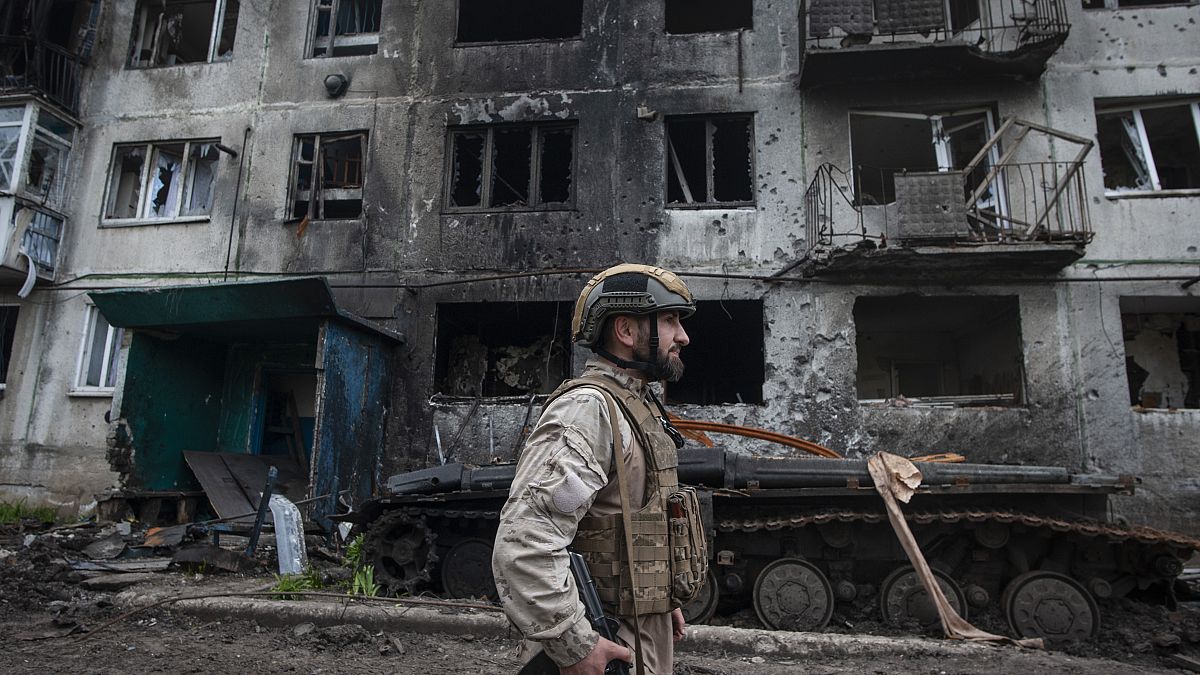Minnesota
Asylum saves lives. It is under attack. – Minnesota Reformer

In today’s congressional battle over asylum, the real people seeking protection get lost. In Minnesota, one of those real people is Dr. Edwige Mubonzi.
Death threats drove Mubonzi from her home and work in the Democratic Republic of Congo. Rape was used as a weapon of war, and civil war over valuable minerals raged through the country. Her medical work in repairing the physical damage of rape victims made her a target. So did her advocacy for rape victims. Mubonzi didn’t want to leave her country, but the death threats left her no choice. She came to the United States — to Minnesota — and was granted asylum in 2015.
Today, U.S. asylum laws are being targeted in congressional negotiations over a supplemental funding bill. Attacks on asylum and humanitarian parole are falsely proposed as “border security” measures. Gutting asylum protection adds nothing to border security and, instead, will increase border chaos.
Instead of putting impossible conditions on asylum, Congress should provide adequate funding to improve asylum processing.
As U.S. law contemplates, asylum seekers should be able to make their applications and have those applications considered by an asylum officer or judge in a timely manner. They should not have to use an often unreliable cell phone app to get an appointment to ask for permission to make an application. They should not be forced to wait for months in unsafe camps in Mexico, in danger of extortion, robbery and rape.
Adequate funding would allow an orderly asylum process at the border, as well as reducing the current years-long backlogs for decisions on asylum applications.
Doing so would help Minnesota continue its long and honorable history welcoming people fleeing persecution and war. Mubonzi chose to come to Minnesota because of the many human rights organizations here. In the federal fiscal year that ended Sept. 30, Minnesota welcomed 1,525 refugees from more than 30 countries. On a per capita basis, Minnesota leads the nation in welcoming refugees.
Like Mubonzi, people fleeing danger in their home countries do not all come with official refugee status. Asylum seekers, like refugees, must show that they were persecuted or fear persecution due to race, religion, nationality, political opinion or membership in a particular social group.
Unlike refugees, who apply from outside the United States, asylum seekers must make their applications from inside the United States or at the border as they enter.
Humanitarian parole offers another way in. Many Ukrainians fleeing the Russian invasion of their country were admitted with humanitarian parole. Afghans airlifted here when the Taliban took over also received humanitarian parole.
Whatever their status, these new Minnesotans have at least two things in common: They are fleeing intolerable situations in their home countries — and they have a great capacity to contribute to their new communities. As doctors, home health care aides, teachers, and much more, they contribute to building Minnesota for all of us.
Minnesota’s decades of welcoming refugees informs our defense of asylum and humanitarian parole. Blocking vulnerable immigrants from seeking access to safety endangers their lives and the lives of their families. That is just as true of asylum seekers and humanitarian parolees as it is of refugees. The lives of vulnerable and persecuted people must not be reduced to bargaining chips in partisan deal-making.
The current attack on asylum is sadly not a new proposal. Every time that “must pass” legislation comes up, some in Congress try to use it as a bargaining chip to gut asylum protections. They tried with the last budget negotiation to keep the government open, they are trying now with the supplemental funding package, and they will try again in next year’s budget battles.
People seeking safe haven for themselves and their children should not be pawns in anyone’s political games.

Minnesota
PWHL: Minnesota ties semifinal series in double OT

The first three games of Minnesota’s best-of-five Professional Women’s Hockey League semifinal playoff series against Toronto featured a shutout, with Toronto winning the first two games and Minnesota the third.
The pattern continued Wednesday night at Xcel Energy Center, but this time it took two overtimes to declare a winner.
Minnesota’s Claire Botorac scored at 4:27 of the second overtime as Minnesota beat Toronto, 1-0.
Butorac banged in the rebound of a shot from the point that caromed into the slot off the back boards.
Minnesota’s win sets up a deciding Game 5 on Friday night at Coca-Cola Coliseum in Toronto. The eventual series winner will play Boston in a best-of-five series for the inaugural PWHL championship.
“Honestly, my linemates did most of the work,” Butorac said of the winning goal. “I got in on the good change from the line before us, and I picked up that rebound in the front of the net.
“We knew it was going to be a dirty goal. Just happy to finish.”
Minnesota coach Ken Klee commended his team for finding a way to tie the series after losing the first two games and facing elimination.
“When you’re season’s on the line and you’re back at home, that’s a good feeling,” Klee said. “You can take it as pressure or, hey, we’ve played well at home all year. I think breaking through in Game 3 was good for our confidence and being excited to play hockey, knowing we can win games.
“Tonight, I loved our first period, I loved our third period. They took it to us a little in the second, which you’re going to expect. They’re a good team. But I’m super proud of our team. Even when we gave up chances we kept going, we stayed positive.”
Toronto played without Natalie Spooner, the league’s leading scorer, who sustained a knee injury in Game 3. Spooner will miss the remainder of the postseason.
Toronto’s offense definitely was limited. It managed only 11 shots on goal through three periods, while Minnesota had 23.
Neither team was able to produce much offense in a scoreless first period, with Minnesota holding a 5-3 edge in shots on goal. Minnesota had the two best scoring chances of the period, and they came from its top line.
Grace Zumwinkle fired a slap shot from the top of the right-wing circle at 11:39 that got through Toronto goaltender Kristen Campbell, but the puck slid just wide of the far post. With just over four minutes to play in the period, Campbell made a good stop on a shot from in tight by Taylor Heise.
Toronto put on some offensive pressure early in the second period and came close to taking the lead when Hannah Miller’s shot from the slot hit the outside of the left post.
Minnesota went on the first power play of the game at 3:22 of the period, but it lasted only 55 seconds, when Denisa Krizova was sent off for tripping.
It proved to be another period dominated by tight checking. Toronto had six shots on goal in the period, Minnesota four.
Minnesota got another power-play opportunity at 6:57 of the third period, but it was Toronto that got the best scoring opportunity. Minnesota goaltender Maddie Rooney made a clutch left pad save to deny Kaitlin Willoughby from in tight.
Minnesota defender Sophie Jaques got a good scoring chance 13 minutes into the period, but Campbell stopped her with a glove save on a rising shot.
Minnesota outshot Toronto 14-2 in the third period.
Minnesota
Stuck in Brazil with premature baby, Minnesota family fights bureaucracy to return home

This week, Greyson Leo Phillips turned nine weeks old. He’s finally out of neonatal intensive care after 51 days, and he has more than doubled his birth weight of 2 pounds, 2.6 ounces.
But he’s not home, unless an Airbnb in the Brazilian coastal city of Florianópolis counts at home. Instead, Greyson is stuck in a Brazilian bureaucratic nightmare, unable to leave Brazil and go to his real home in Minnesota.
Greyson and his parents, Chris and Cheri Phillips of Cambridge, have been battling a maddening bureaucratic Catch-22 after his premature birth during a winter trip to Brazil. Because of a technicality, Brazilian authorities haven’t issued his birth certificate; the office said it cannot issue a birth certificate because Chris and Cheri’s passports, like all American passports, don’t have their parents’ names.
Without a birth certificate, Greyson can’t get a U.S. passport.
Without a U.S. passport, Greyson can’t go home to Minnesota.
“We’ve been working on this since day one, and we have nothing yet,” Chris said.
Their odyssey began in mid-February. Chris, who used to live in Brazil, has a daughter from a previous relationship who lives with her mother in Florianópolis, about 700 miles southwest of Rio de Janeiro. He and Cheri traveled there to celebrate his daughter’s eighth birthday. Cheri’s doctors encouraged her to make the trip; she’d had zero complications and was yet to enter her third trimester. This was the time to do it, they told her.
A couple days before their scheduled return in March, Cheri felt back pain, then contractions. Early the next morning, Cheri was bleeding. They went to a hospital at 4 a.m. For days, doctors tried to stop labor.
“That was our hope — just calm down her body and get on planes and go home,” said Chris, who works in marketing and communications at Children’s Minnesota. “It soon became apparent that was not going to happen. This baby was go to be born in Brazil.”
Greyson was born March 12 with a hole in his heart, struggling with apnea. As Chris and Cheri huddled over their son in an incubator, their Realtor and mortgage broker completed the sale of their St. Louis Park condo and purchase of their Cambridge house. Friends and family moved their stuff into their new home.
The main holdup seems mundane. Brazilian hospitals give parents a certificate of live birth, then parents must visit a local registry office for an official birth certificate. But officials refused to issue the birth certificate, Chris said, since Chris and Cheri’s passports don’t have their parents’ names. (American passports don’t include parents’ names, but Brazilian passports do.)
Chris’ uncle shipped the couple’s birth certificates and marriage license, which have their parents’ names. Those were deemed unacceptable because they don’t have an apostille stamp, which authenticates a public official’s signature for use in a foreign country. They hired a lawyer to secure Greyson’s documentation. A month later, their case hasn’t gone anywhere.
After the Brazilian birth certificate, the couple will need a consular report of birth abroad and a U.S. passport from an embassy or consulate in Brazil. But according to U.S. State Department policy, applicants must physically go to the appointment.
This presents multiple problems: The nearest consulate is 300 miles away in a region that’s experiencing severe flooding. Greyson can’t fly without documentation. And Greyson is too small for his car seat, so they can’t drive.
The family received a bit of good news this week: After pressure from U.S. Sen. Tina Smith’s office, the embassy agreed to send a representative to Florianópolis to process Greyson’s American documentation.
But only after they secure a Brazilian birth certificate.
“Mentally, we are not doing well,” Chris said Wednesday as he drove to a federal office in Florianópolis to extend their tourist visas. In their “first piece of bureaucratic good news yet,” Chris said, Brazilian authorities extended their visas until Aug. 21.
“It’s mentally exhausting,” said Cheri, who works as a philanthropy services manager at Saint Therese Senior Living. “Now that he’s quote-unquote ‘home’ in an Airbnb, it’s honestly even harder on me. The only reason we’re here now is because of all the bureaucracy. I’m either on the verge of crying or I’m mad or I’m just sitting on couch with Greyson, cuddling or nursing him.”
There’s been only one blessing from this experience, Chris said: Spending more time with his 8-year-old daughter, Melory, who he typically only sees three times a year.
“And she’s had the opportunity to bond with Greyson,” Chris said. “That’s the only silver lining.”
Minnesota
Minnesota Wild Announces Promotions in Hockey Operations Department | Minnesota Wild

Sells is entering his sixth season with Minnesota, most recently serving as Vice President of Hockey Strategy for three seasons (2021-24). He is responsible for salary cap management, player contract research and negotiations, analytics and hockey strategy and Collective Bargaining Agreement (CBA) compliance. Sells originally joined the Wild organization as Director of Hockey Analytics, a role he held for two seasons (2019-21).
Murray is entering his fifth season with Minnesota, most recently serving as Director of Hockey Operations/General Manager of the Iowa Wild for three seasons (2021-24). He is responsible for scheduling, NHL transactions and player contract research and negotiations and will continue to assist in the day-to-day operations of the Minnesota and Iowa hockey operations departments. Murray joined the Wild organization as Assistant to the General Manager, holding the role for one season (2020-21).
Kelleher is entering his 18th season with the Minnesota Wild, most recently serving as Director of Player Personnel for two seasons (2022-24). He will oversee the Wild’s professional scouting and player personnel efforts in North America and Europe and support the team’s preparation for the NHL trade deadline and free agency. Kelleher joined the organization as a part-time professional scout in 2008-09 and was promoted to a full-time professional scout for the 2009-10 season before serving as Director of Professional Scouting for three seasons (2019-22).
Hendricks is entering his sixth season with the Minnesota Wild, most recently serving as Assistant Director of Player Development for five seasons (2019-24). As General Manager of the Iowa Wild, he is responsible for the day-to-day hockey operations of the American Hockey League club. Hendricks will also continue to support the Wild’s player development department.
-

 News1 week ago
News1 week agoCompass Direct LLC’s 2024 Registration in North Carolina
-

 World1 week ago
World1 week agoTech compliance reports, Newsletter
-

 News1 week ago
News1 week agoMan, 75, confesses to killing wife in hospital because he couldn’t afford her care, court documents say
-

 News1 week ago
News1 week agoColumbia University cancels its main commencement ceremony after weeks of turmoil
-

 World1 week ago
World1 week agoPentagon chief confirms US pause on weapons shipment to Israel
-

 World1 week ago
World1 week agoConvicted MEP's expense claims must be published: EU court
-

 Politics1 week ago
Politics1 week agoRFK Jr said a worm ate part of his brain and died in his head
-

 Politics1 week ago
Politics1 week agoPresidential polls show deadlocked race as party conventions quickly approach




















